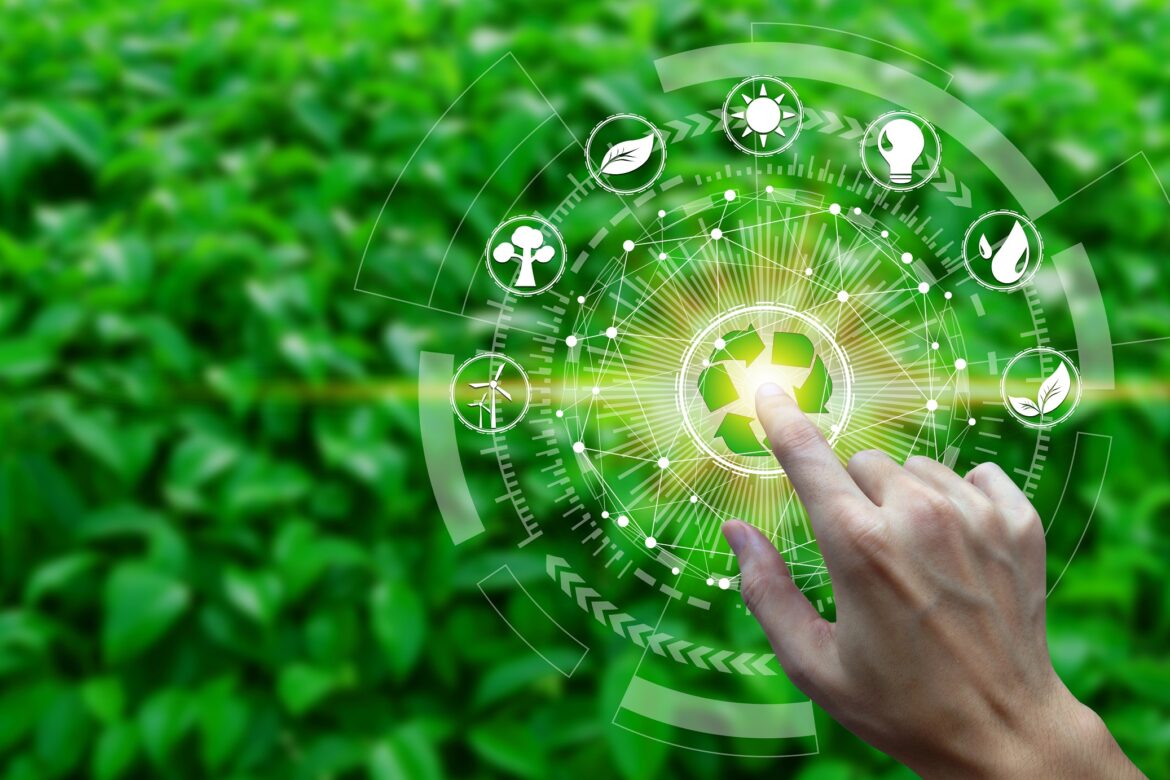Ricoh and Ricoh Japan are working to establish their GX (Green Transformation) business as the third pillar of their operations, alongside office printing and office services, by 2030. They plan to increase gross profit for FY2025 to 1.94 times the FY2022 level, targeting a CAGR (Compound Annual Growth Rate) of over 30%.
The key elements of the GX business are as follows:
- Proposing roadmaps based on decarbonization steps
- Expanding renewable energy proposals and offerings
- Promoting GX for manufacturing and regional areas
Ricoh Japan is leveraging synergies between renewable energy proposals, MFP replacement plans, and digital services to expand business with existing customers. Ricoh Japan is simultaneously strengthening solutions and developing human resources to advance decarbonization initiatives, rooted in understanding GX policies and internal implementation.
Chairman Yoshinori Yamashita of Ricoh highlighted the importance of decarbonization on Ricoh’s YouTube channel, stating, “Decarbonization can be a threat if neglected, but a growth opportunity if embraced. We are committed to supporting decarbonization management for our communities and customers. Let’s return a cleaner Earth to the children of the future.”
To address societal challenges, Ricoh Japan established the Public Service Headquarters in April 2023, which oversees the Municipal Business Department, GX Business Department, and Healthcare Business Department. Known as the Social Problem-Solving Headquarters, it focuses on expanding value delivery in solving regional and societal issues.
Atsushi Hanai, managing director of the Public Service Headquarters, commented, “GX is a highly dynamic field where changes occur every two to three months, making it challenging to grasp the overall picture.”
Green Transformation Promotion Law
In Japan, laws mandate a 46% reduction in greenhouse gas (GHG) emissions by 2030 and achieving carbon neutrality by 2050. The GX Promotion Law includes three main initiatives:
- Preventing global overheating
- Reducing fossil fuel import costs, which totaled ¥37 trillion last year
- Creating new industries through GX initiatives
The Japanese government, led by the Cabinet Office, Ministry of the Environment, Ministry of Economy, Trade and Industry, and Ministry of Land, Infrastructure, Transport, and Tourism, is taking an unusually collaborative approach by enacting laws and providing financial support to promote regional GX.
In advancing regional green transformation, Ricoh Japan collaborates with municipalities that are leading green transformation efforts, financial institutions that provide funding, economic organizations and academic institutions that supply information, and other public-private partnerships. These partnerships aim to implement green transformation in public facilities and strengthen GX initiatives in large enterprises, SMEs, and local communities. Ricoh Japan has utilized its 48 branches and 358 locations nationwide to establish cooperative agreements with 79 municipalities, economic organizations, and academic institutions across Japan. Additionally, it has partnered with 151 local and regional banks to advance green transformation within their jurisdictions.
Six Decarbonization Steps
As part of its “Decarbonization STEP Support Service,” Ricoh Japan offers the following six steps in line with Ministry of the Environment guidelines:
Step 1: Integrating the purpose of decarbonization management
Step 2: Visualizing CO2 emissions
Step 3: Identifying CO2 emissions
Step 4: Creating a decarbonization roadmap
Step 5: Implementing CO2 emission reduction measures
Step 6: Disclosing results
The green transformation process involves progressing through Steps 1 to 6 and continuously reviewing and repeating Steps 4 to 6 to ensure effectiveness.
Ricoh 2024 First Half Results and Future GX Strengthening Policies
In its GX (Green Transformation) initiatives, Ricoh Japan focuses on developing human resources capable of handling various products, solutions, and certification systems. The number of employees who have acquired external GX-related qualifications is as follows:
- GX Advisors Certified by the Ministry of the Environment: 40
- Sustainable Management/CSR Certification: 302
The number of employees with construction-related external qualifications is as follows:
- Foremen and Safety/Health Supervisors: 3,091
- Piping Construction Management Technicians: 89
- Assistant Piping Construction Management Technicians: 71
- Electricians: 1,061
- Electrical Construction Management Technicians: 96
- Assistant Electrical Construction Management Technicians: 39
The number of customer implementations for decarbonization Steps 1 to 4 in the first half of fiscal year 2024, compared to the second half of fiscal year 2023, decreased for Step 1 from 2,025 to 1,076 cases. However, there were significant increases in Step 2, from 510 to 1,472 cases; Step 3, from 108 to 954 cases; and Step 4, from 0 to 549 cases.
“We place great importance not only on sales and profits but also on how much we can reduce our customers’ CO2 emissions,” says Director and General Manager Hanai.
Ricoh Japan achieved a CO2 reduction of 13,742 tons by adopting renewable energy in the first half of fiscal year 2024, primarily among manufacturing industry clients. This represents approximately 1.5 times (153.1%) the reduction compared to the same period in the previous year. The breakdown of CO2 reductions by industry is as follows: manufacturing accounts for 52.1%, distribution for 19.6%, and healthcare for 9.1%.
To expand its business and better support these customers, Ricoh Japan is focusing its efforts on three key areas: solutions, human resource development, and internal practices.




